This week’s Bournemouth University (BU) advertised a forthcoming event in February 2024 ‘Early Career Researchers and Interdisciplinarity in the Medical Humanities – South West‘. To promote this event I would like to highlight some papers published recently by BU academics on interdisciplinarity.
First, Dr. Shanti Shanker in the Department of Psychology and Dr. Pramod Regmi in the Department of Nursing Science and Prof. Edwin van Teijlingen in the Department of Midwifery & Health Sciences published the paper ‘The Interdisciplinary Team Not the Interdisciplinarist: Reflections on Interdisciplinary Research’ [1]. This interesting paper is co-authored with two BU Visiting Faculty, Ms. Jillian Ireland, Professional Midwifery Advocate in Poole Maternity Hospital (University Hospitals Dorset NHS Foundation Trust) and Prof. Padam Simkhada based at the University of Huddersfield. This paper argues that interdisciplinary working is within the team, not the person being interdisciplinary . Multidisciplinary teams provide unique opportunities for researchers from different disciplines (and hence different ways of working and thinking) to collaborate with one another. We need to be careful not to try to create interdisciplinarists, or at least, not too many. The worlds needs people who are strong in their discipline and open-minded/flexible/reflective enough to see the value of other people’s disciplines. 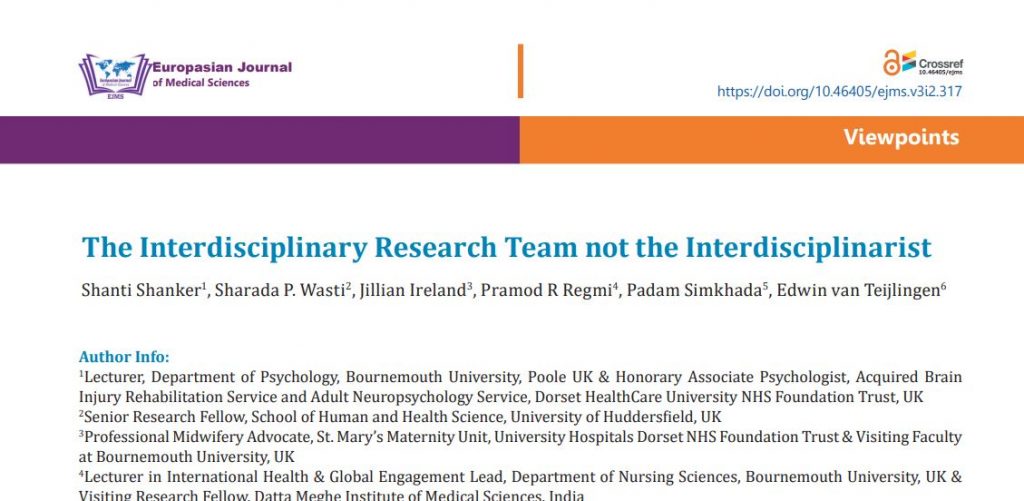
Secondly, the Journal of Manmohan Memorial Institute of Health Sciences published our editorial ‘Public Health is truly interdisciplinary’ [2]. This editorial was largely written to counteract some of the jurisdictional claims made in Nepal by certain people in Public Health. These claims express themselves in arguments around the question whether Public Health is a single academic discipline or a broad interdisciplinary profession comprising many different individual academic disciplines. There are two quite distinct and opposing views. Some argue that Public Health is a broad-ranging single discipline covering sub-disciplines such as Epidemiology, Management, Medicine, Nursing, Health Psychology, Medical Statistics, Sociology of Health & Illness and Public Health Medicine. Those who support this argument, typically see: (a) Public Health is the overarching dominant discipline, which brings these sub-disciplines together; and (b) that a true Public Health practitioner amalgamates all these individual elements. Others argue that Public Health is more an overarching world view or interdisciplinary approach for wide-ranging group of professionals and academics [2]. In this view some Public Health professionals are first trained as clinicians, others as psychologists, health economists, health management, statisticians, or demographers, and so on and have later specialised in Public Health.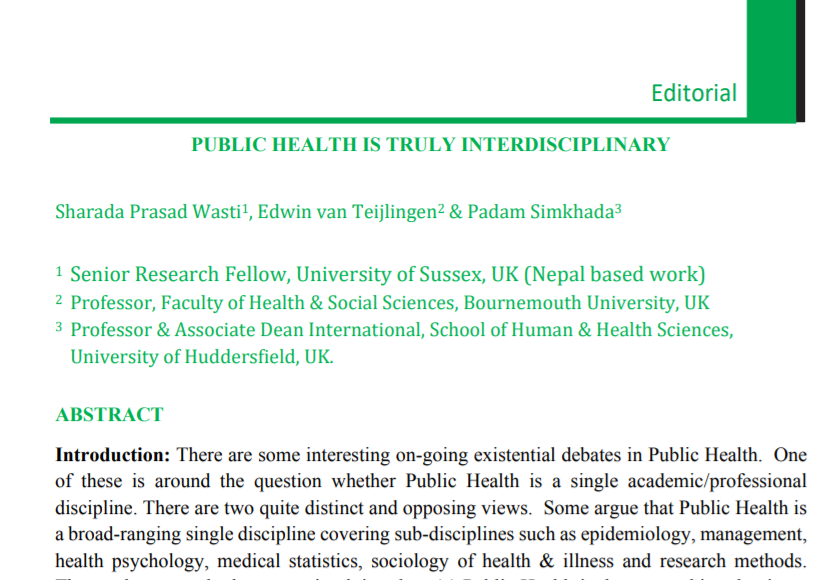
Thirdly, doing multidisciplinary research is not without its problems, hence we reflect on some of these in the paper ‘Interdisciplinary Research in Public Health: Not quite straightforward’ [3]. The authors are BU’s Dr. Pramod Regmi, Dr. Nirmal Ayral in the Department of Nursing Science and Prof. Edwin van Teijlingen, and BU Visiting Professor Padam Simkhada and BU graduate Dr. Pratik Adhikary (currently at the University of the West of England). We all are Public Health researchers, with very different educational backgrounds and training, reflecting the diversity of and interdisciplinarity in the field. Several of us have a first degree in Education or Health Education, but one has a first degree in Sociology. Whilst four of the five authors have Master degree in Public Health and/or Health Promotion, two have a Master in Education. Most of the authors have a Ph.D. in Public Health, but again the Ph.D. of one of us is in Sociology. The key point is that we are all working in Public Health.
Unfortunately the ‘Early Career Researchers and Interdisciplinarity in the Medical Humanities – South West’is for ECRs from the South West Hub only.
Prof. Edwin van Teijlingen
CMWH
References:
- Shanker, S., Wasti, S.P., Ireland, J., Regmi, P., Simkhada, P., van Teijlingen, E. (2021) The Interdisciplinary Team Not the Interdisciplinarist: Reflections on Interdisciplinary Research, Europasian Journal of Medical Sciences 3(2):1-5.
- Wasti, S.P., van Teijlingen, E., Simkhada, P. (2020) Public Health is truly interdisciplinary. Journal of Manmohan Memorial Institute of Health Sciences 6(1): 21-22.
- van Teijlingen, E., Regmi, P., Adhikary, P., Aryal, N., Simkhada, P. (2019). Interdisciplinary Research in Public Health: Not quite straightforward. Health Prospect, 18(1), 4-7.
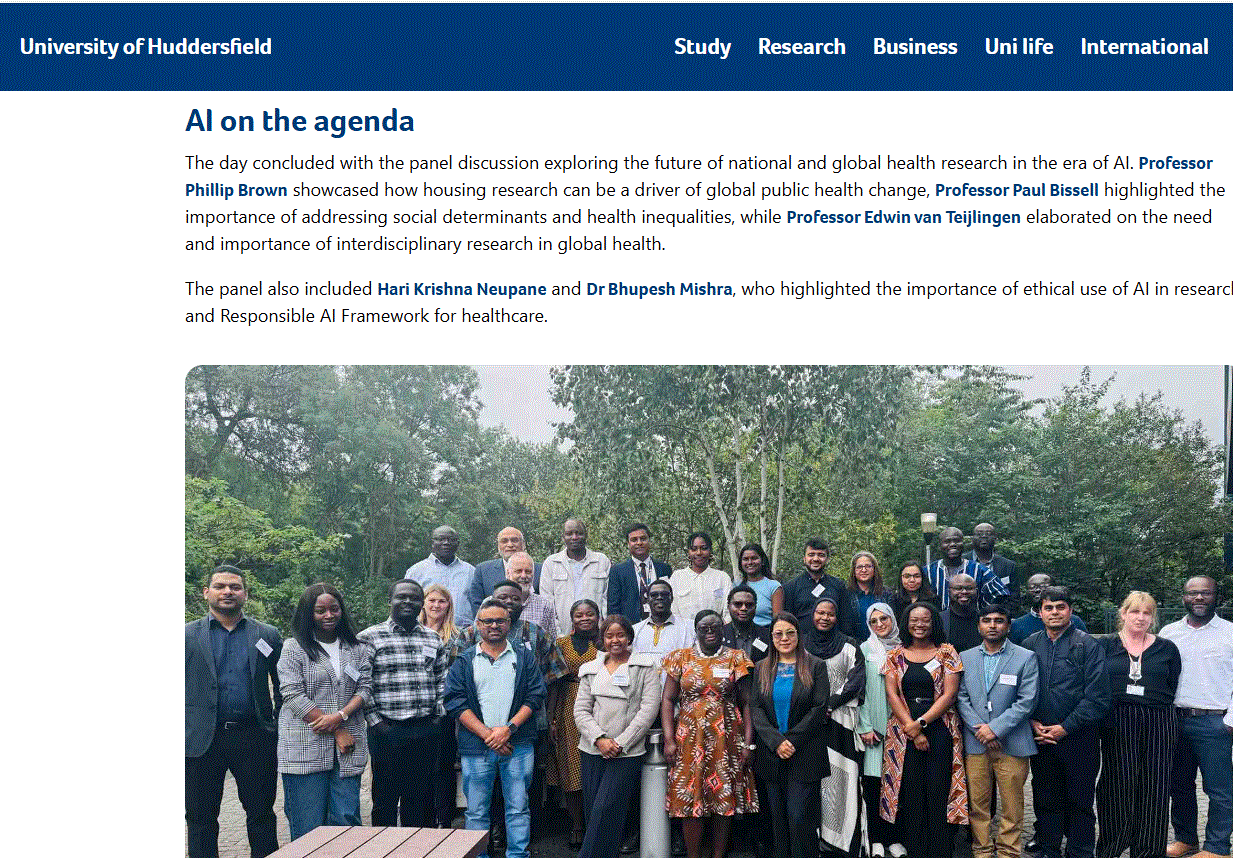

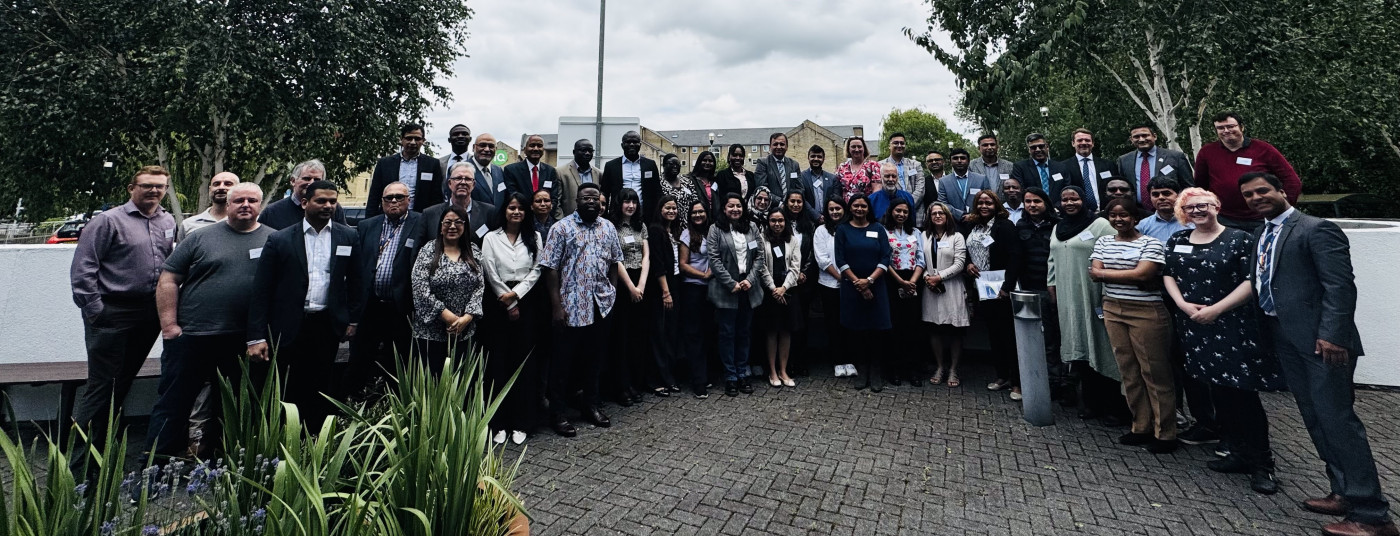
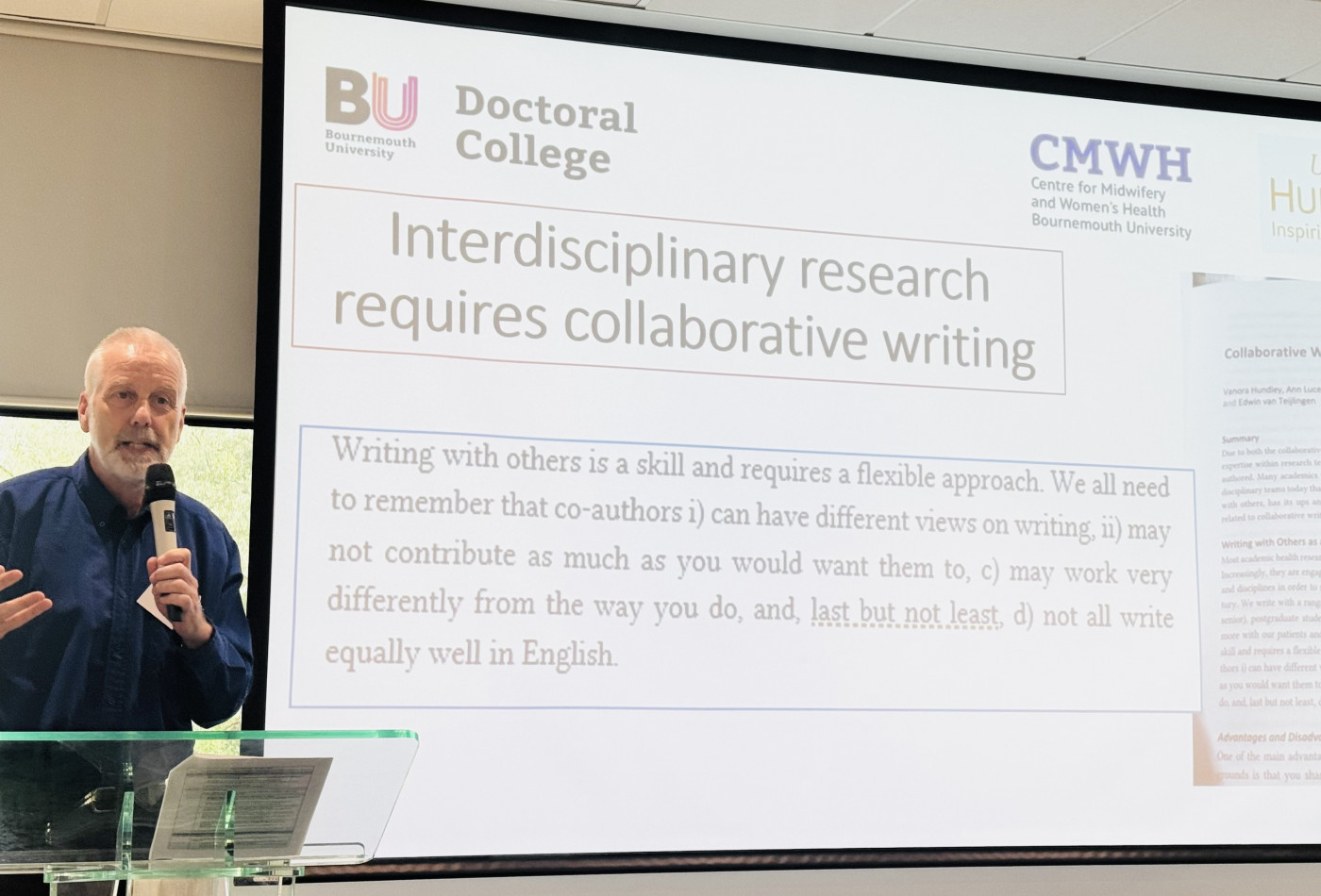
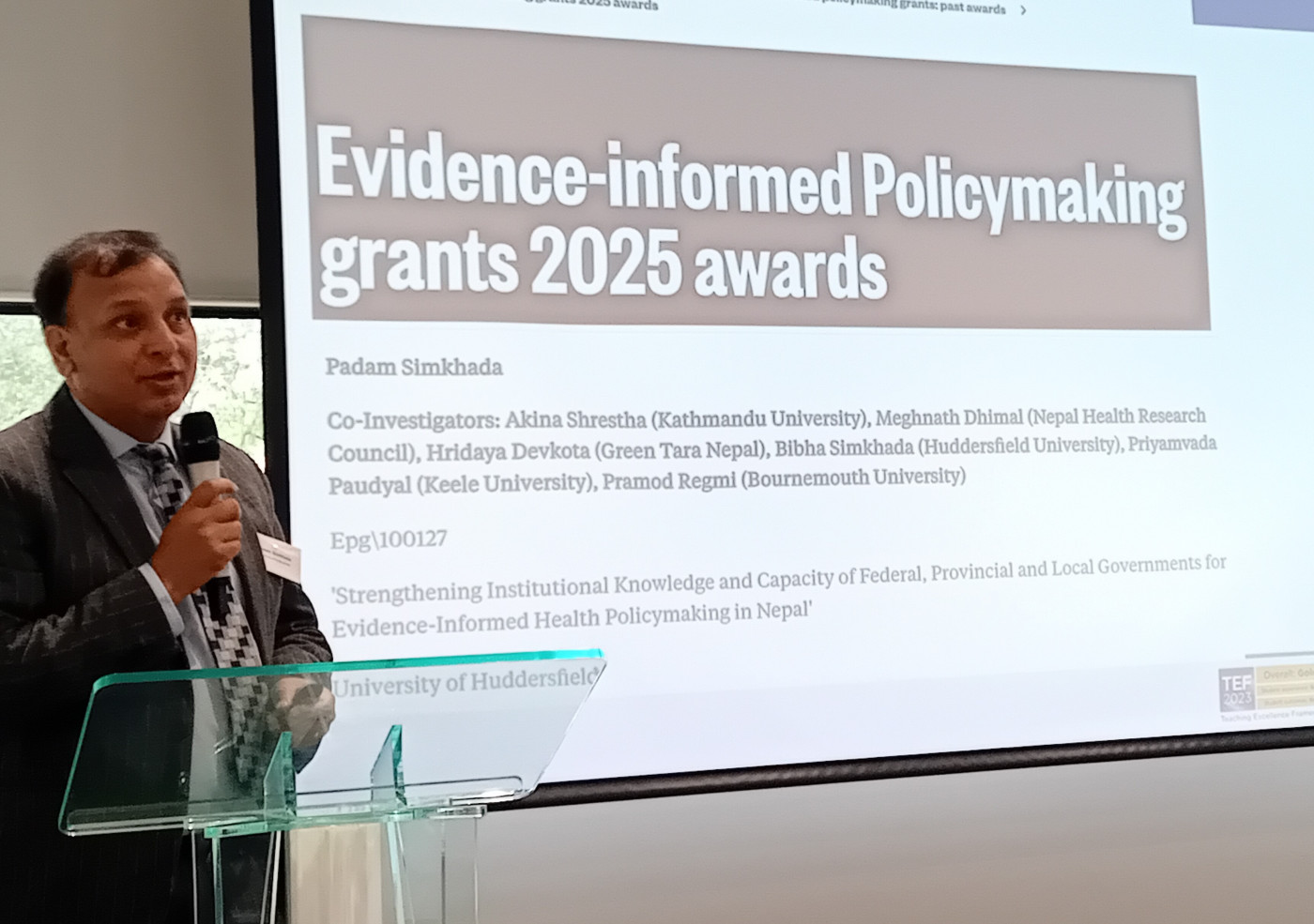
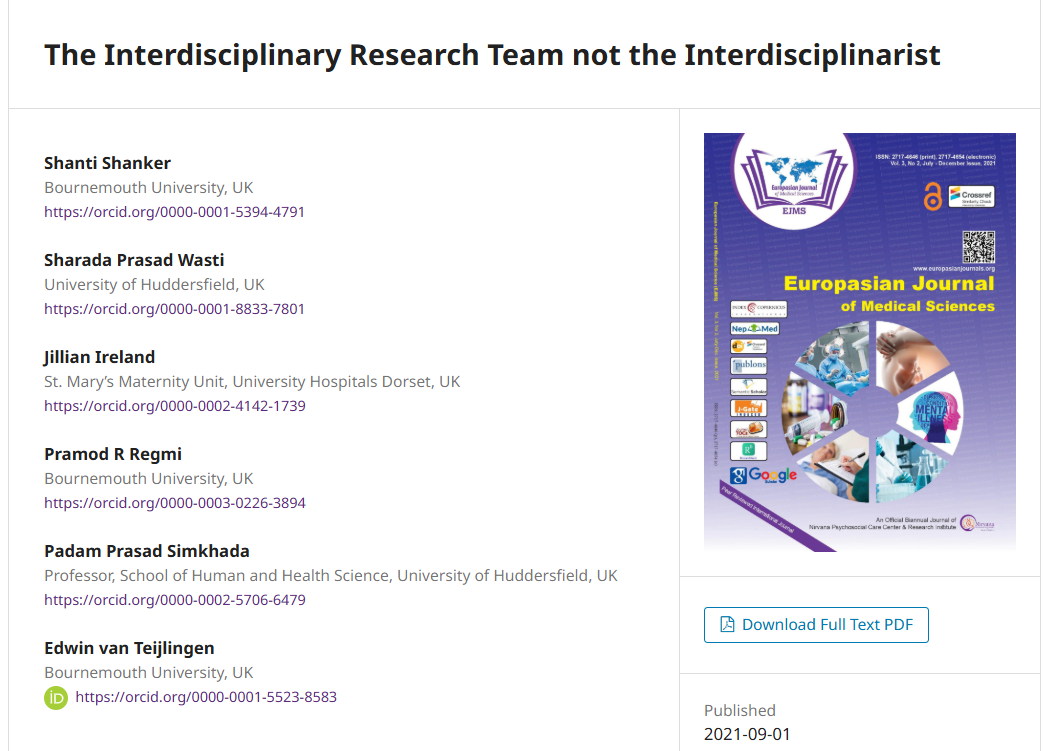
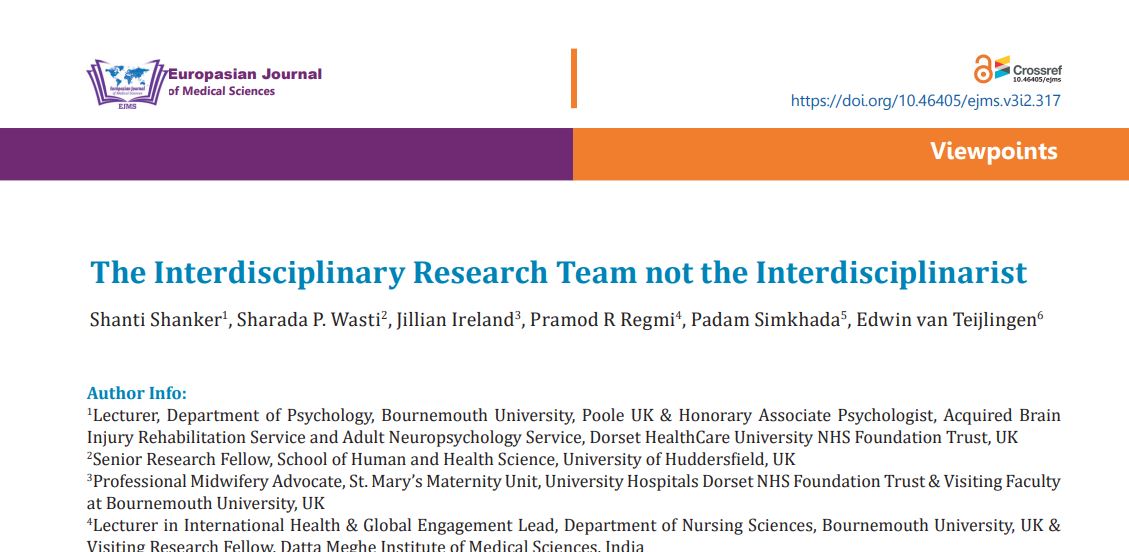

 Funded by the
Funded by the 

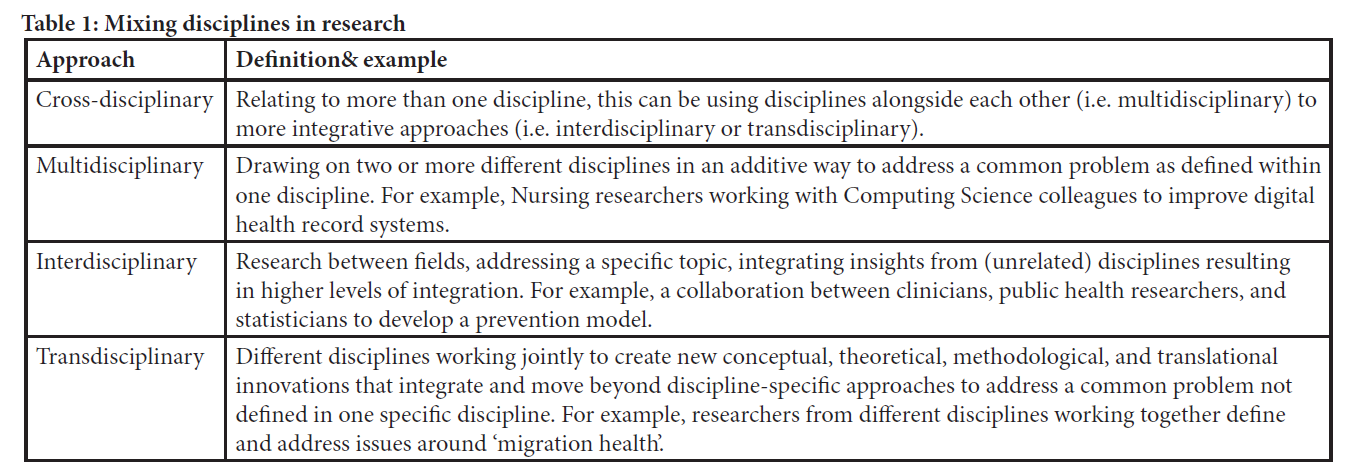
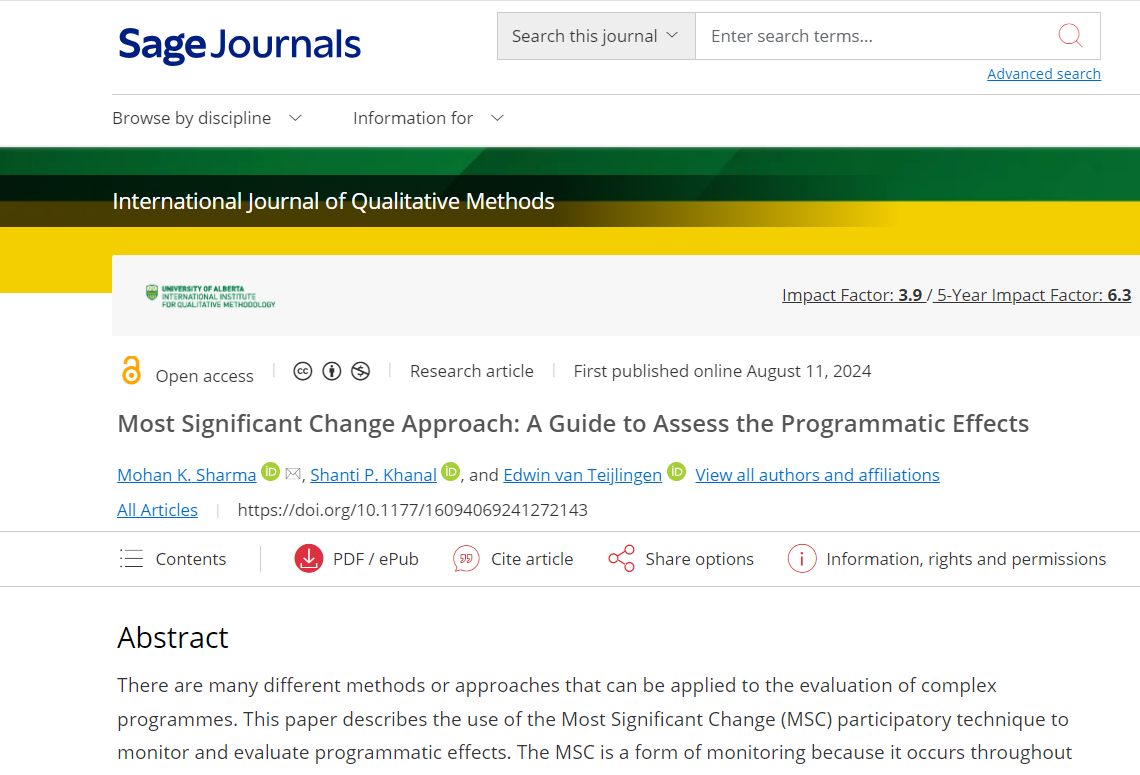
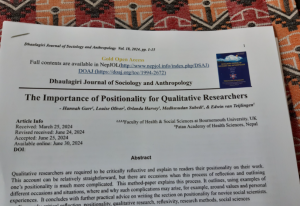

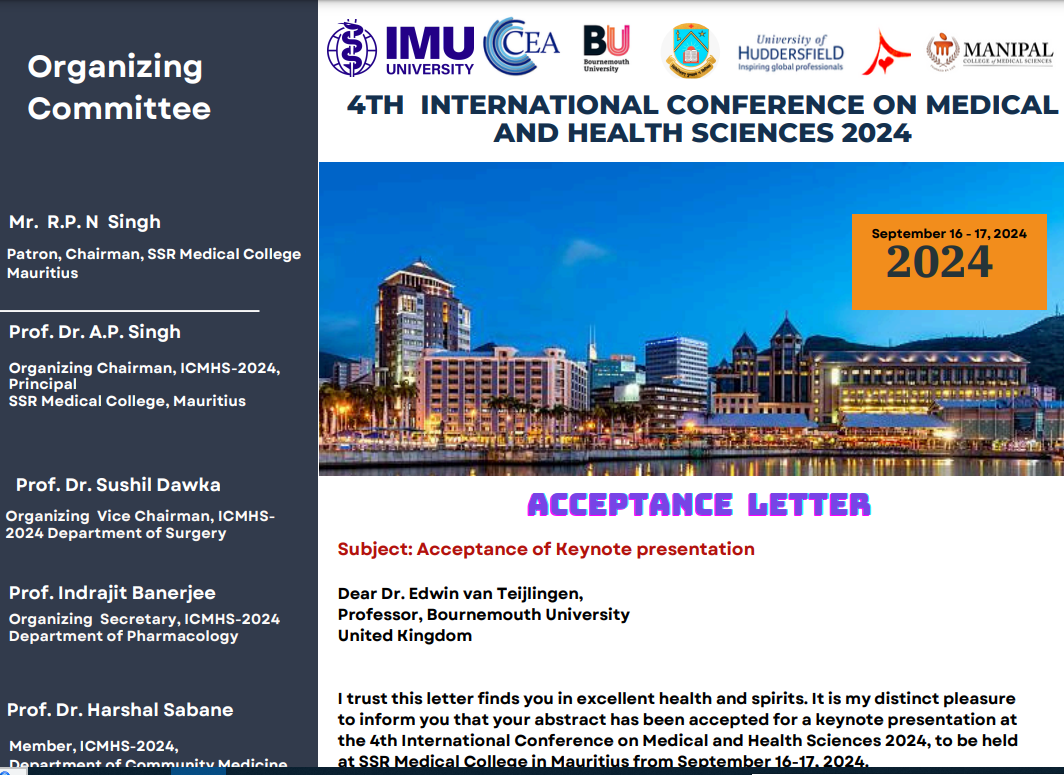


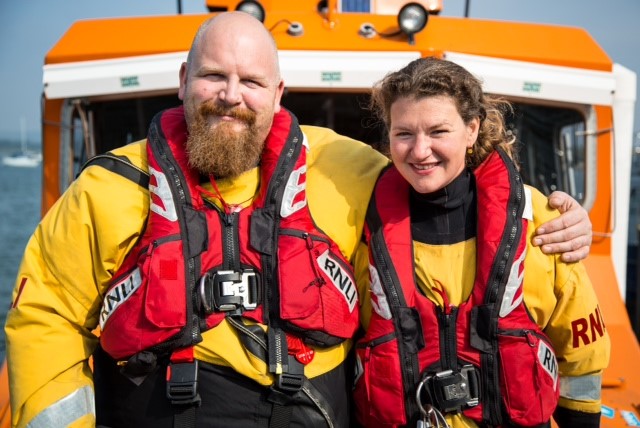

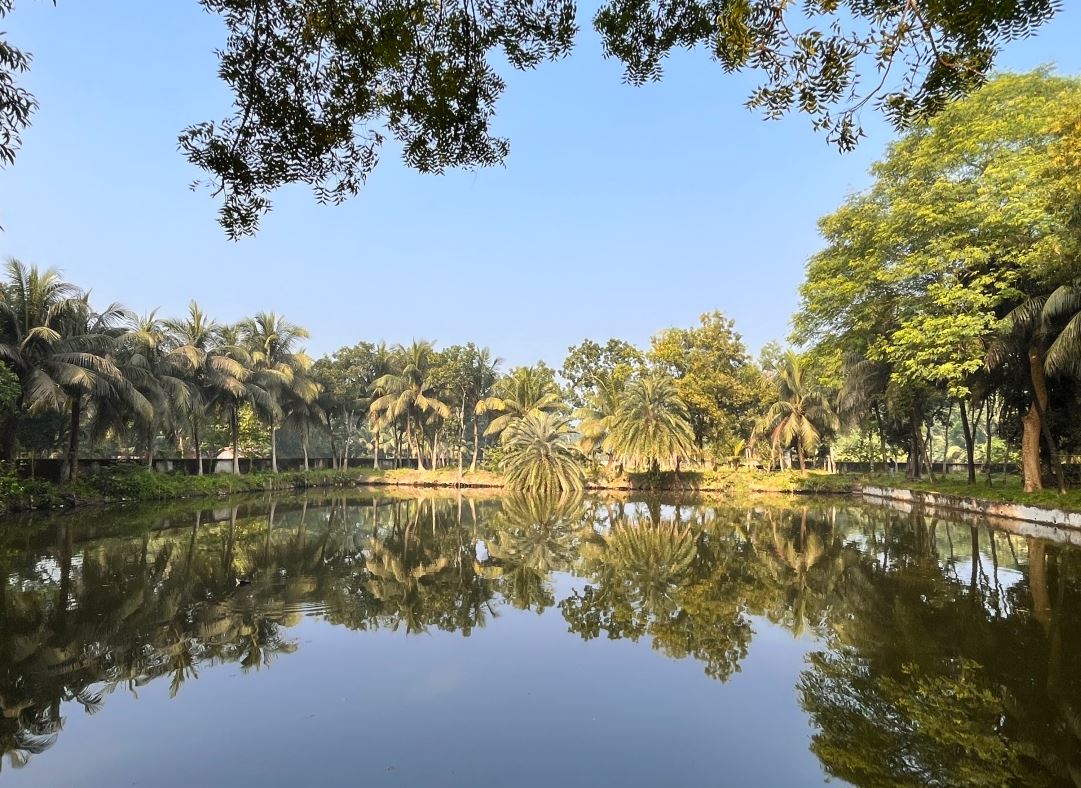
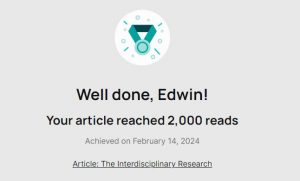
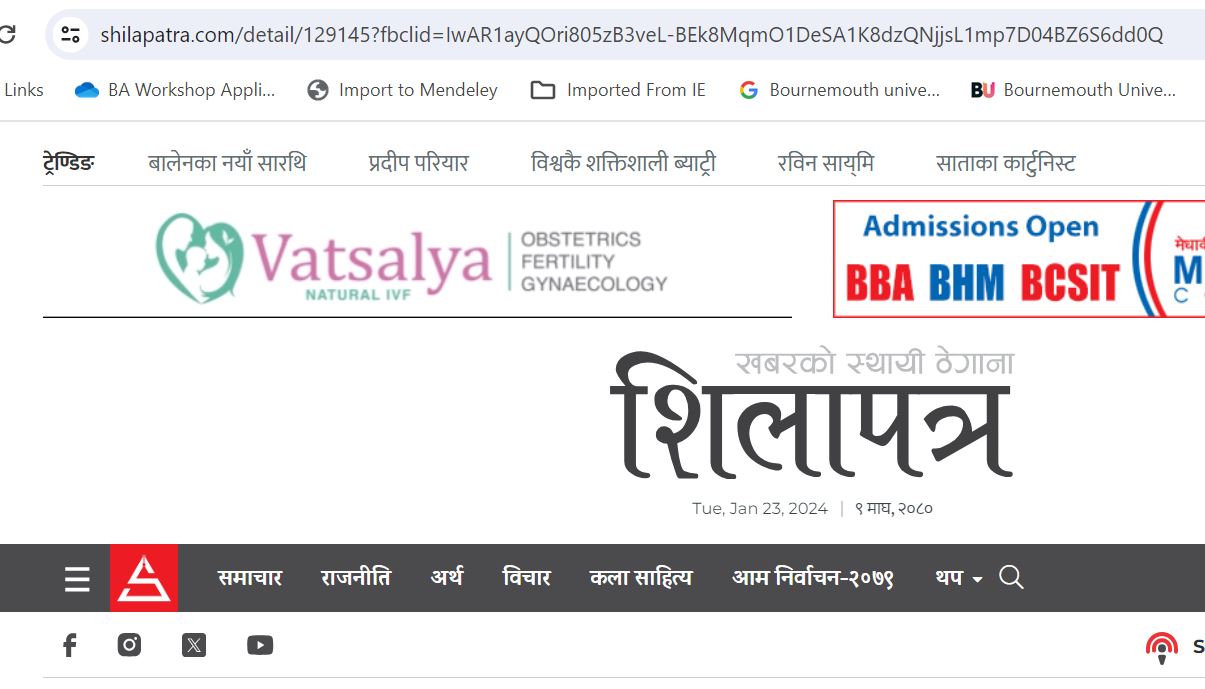
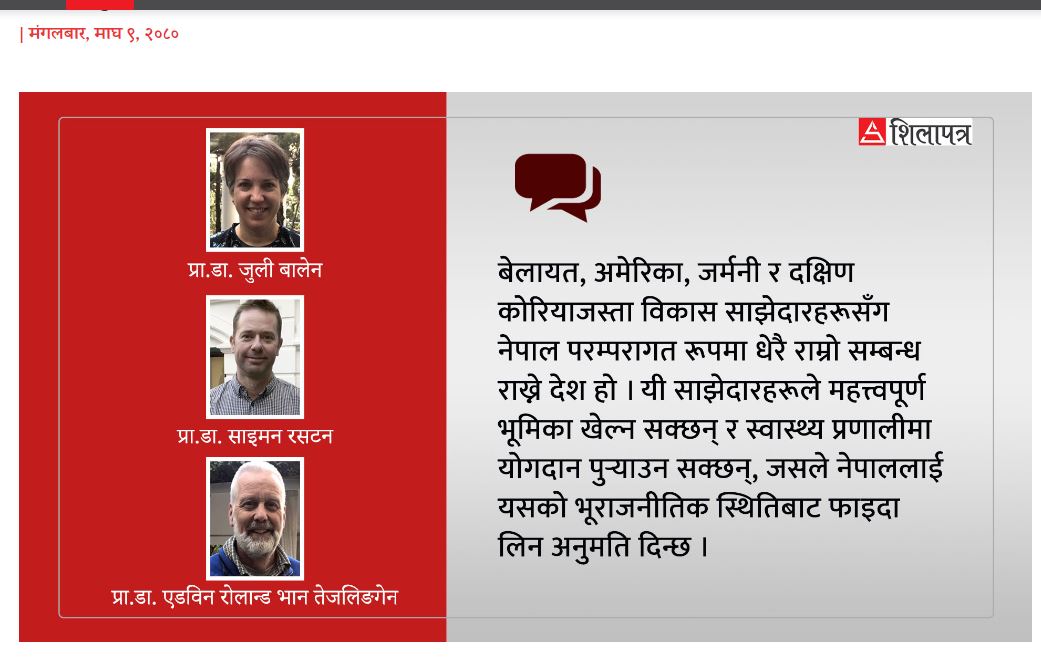




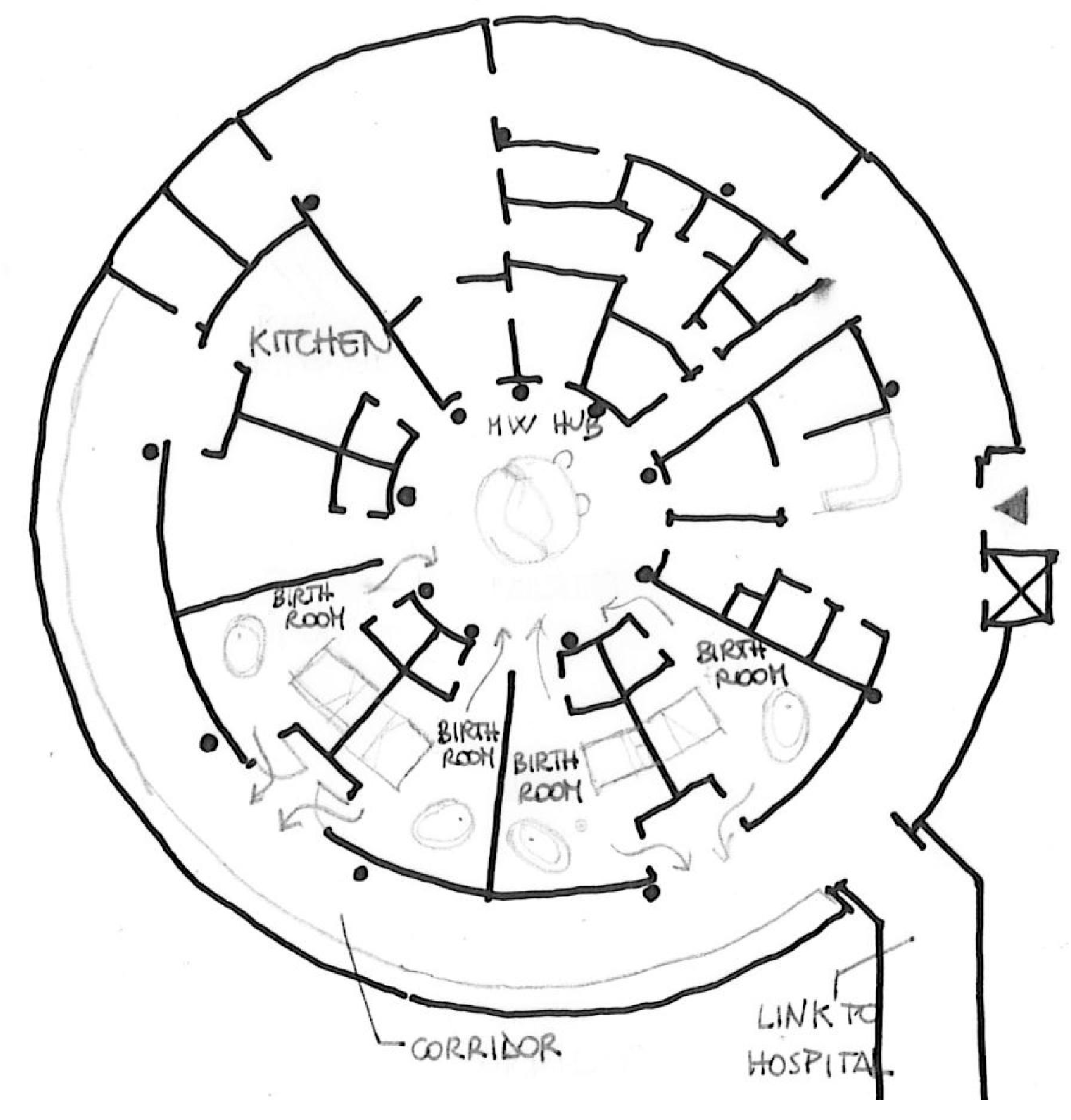
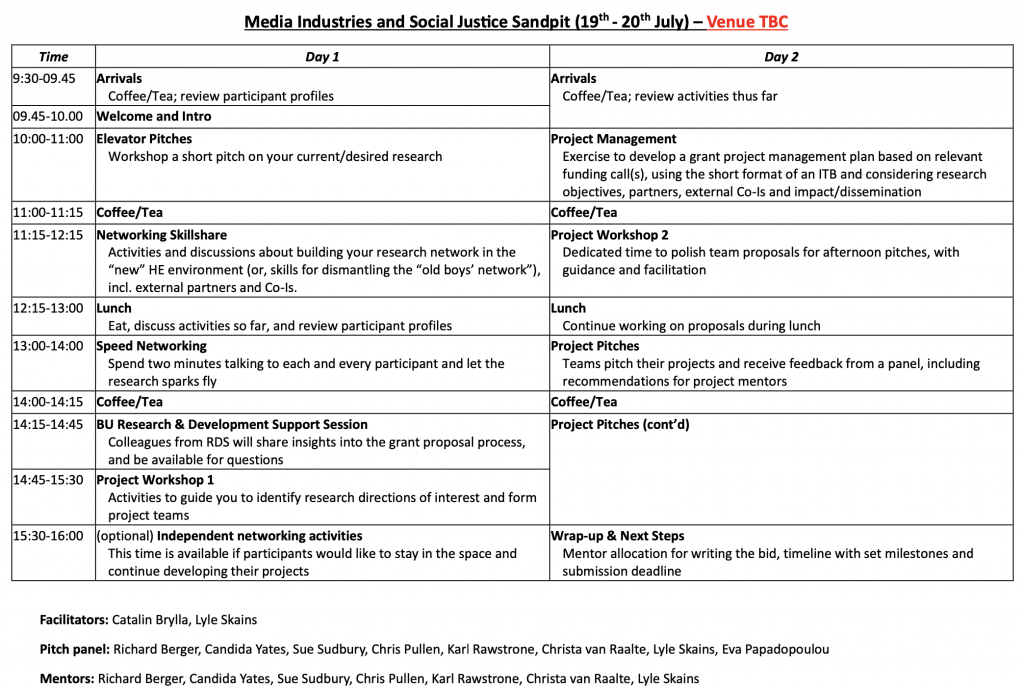



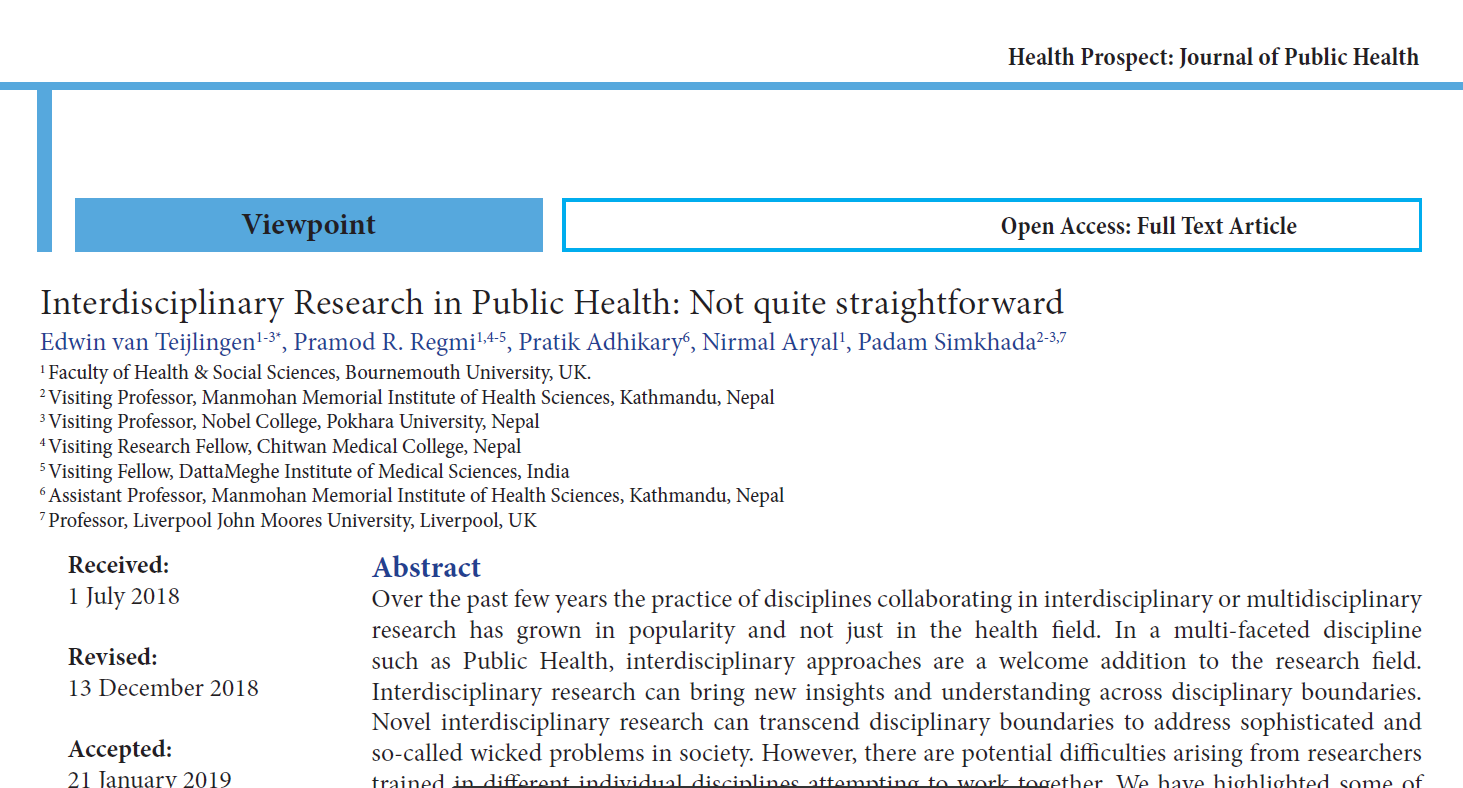

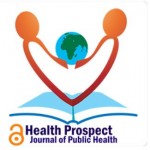















 REF Code of Practice consultation is open!
REF Code of Practice consultation is open! BU Leads AI-Driven Work Package in EU Horizon SUSHEAS Project
BU Leads AI-Driven Work Package in EU Horizon SUSHEAS Project Evidence Synthesis Centre open at Kathmandu University
Evidence Synthesis Centre open at Kathmandu University Expand Your Impact: Collaboration and Networking Workshops for Researchers
Expand Your Impact: Collaboration and Networking Workshops for Researchers ECR Funding Open Call: Research Culture & Community Grant – Apply now
ECR Funding Open Call: Research Culture & Community Grant – Apply now ECR Funding Open Call: Research Culture & Community Grant – Application Deadline Friday 12 December
ECR Funding Open Call: Research Culture & Community Grant – Application Deadline Friday 12 December MSCA Postdoctoral Fellowships 2025 Call
MSCA Postdoctoral Fellowships 2025 Call ERC Advanced Grant 2025 Webinar
ERC Advanced Grant 2025 Webinar Update on UKRO services
Update on UKRO services European research project exploring use of ‘virtual twins’ to better manage metabolic associated fatty liver disease
European research project exploring use of ‘virtual twins’ to better manage metabolic associated fatty liver disease